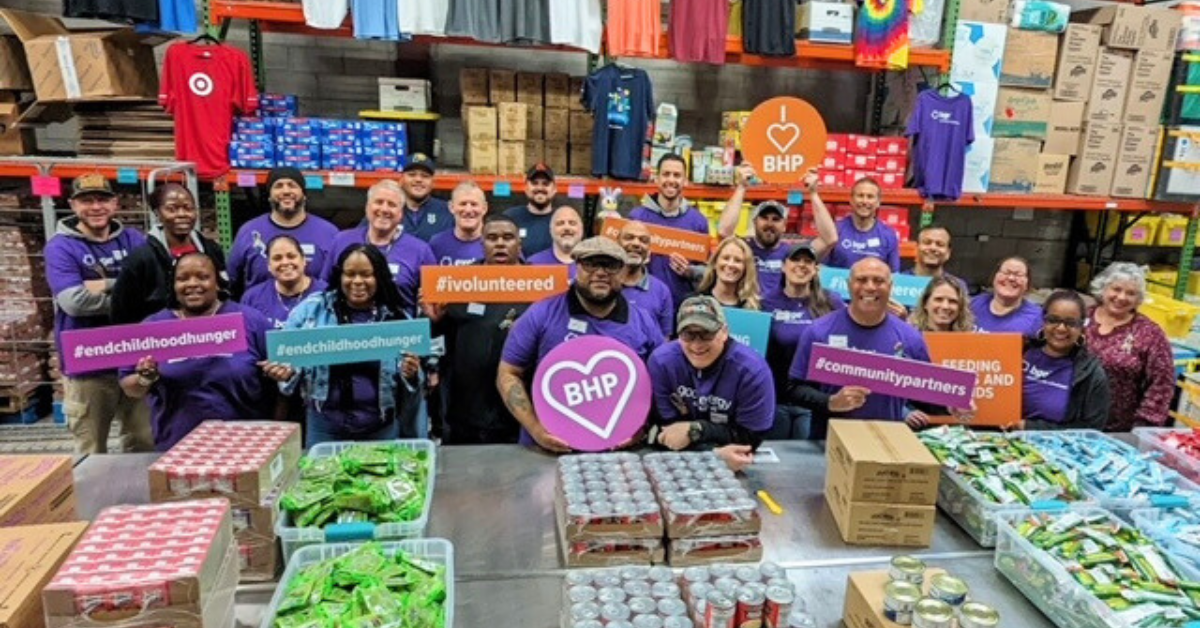To combat childhood food insecurity, Baltimore Hunger Project provides weekend food bags to nearly 2,000 students in 48 schools. Giant Food has supported this nonprofit organization through its Community Bag Program.
Tell us about Baltimore Hunger Project.
The idea behind Baltimore Hunger Project began in 2009 when two friends and I started Lynne’s Garage. We brought friends and family together to make lunches for two shelters for women and children. We gathered in my garage and worked in an assembly line to pack bags of turkey and cheese sandwiches, chips, fruit, and juice boxes.
If you were comfortable donating money, you could do that. If you were comfortable bringing products, you could do that. It was a way to bring people together to do something for the greater community. We did this for nine years.
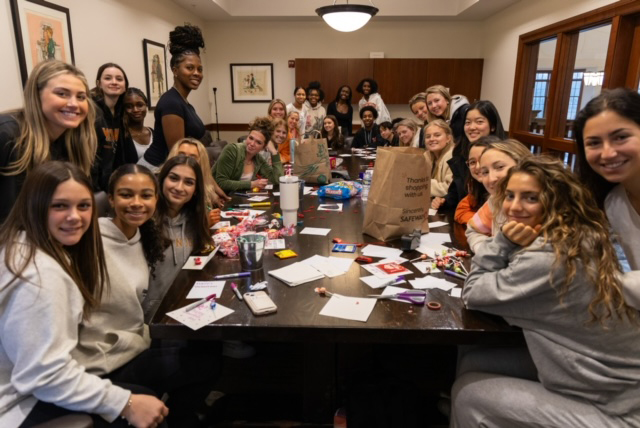
The truly special part of Lynne’s Garage was how we met families where they were. My favorite part was always delivering the lunches to the shelters. Whenever I showed up, the kids came running out and asked me, “Are you the lunch lady?”
This was before Baltimore City and County provided free breakfast and lunch to all students. So, for these kids, I was always the lunch lady. I would bring 200 lunches, and the kids would take these brown bag lunches to school the next day. The moms would tell me how impactful it was for their kids to bring a brown bag lunch to school. Their lives were so complicated, but to be able to show up on Monday with a brown bag lunch meant that they were just like their peers.
Their lives were so complicated, but to be able to show up on Monday with a brown bag lunch meant that they were just like their peers.
I read a study that showed kids who don’t eat over the weekend cannot focus on their studies until Wednesday. So, I started thinking about what happens to kids on the weekends. Everybody talks about Monday through Friday, but nobody focuses on that weekend hunger gap. I thought that I could, so I began Baltimore Hunger Project in 2014 with the mission of eliminating childhood hunger.
We started by putting together weekend food bags for two schools and 30 children. Now, we have just finished our 10th year and have bridged the weekend hunger gap for nearly 2,000 students in 48 schools.
We take a holistic approach by focusing on feeding bodies and minds. To me, this means taking care of Baltimore Hunger Project’s kids in the same way I take care of my own. For example, we celebrate each child’s birthday by sending them home with a birthday kit, which includes a cake mix and oil. It’s everything but the eggs and the oven. Not only do these birthday kits ensure each child can be celebrated, but they also create an experience for the entire family.
We also provide winter coats and socks. We support schools with period products. One in five girls don’t go to school when they have their period because they are uncomfortable or don’t have period products. Additionally, we support our school pantries to make sure we can help support the school community.
What services do you provide to the community?
Each food bag contains the equivalent of three meals for each student. One bag is sent home per child. Inside every bag, we pack three cans of protein plus an additional can of tuna or chicken. We provide shelf-stable milk, cereal, applesauce, two protein bars, and fruit snacks.
We also began including plastic silverware because we found out that one of our students did not have silverware to eat the food. We figured that if he didn’t have it, other kids likely had the same issue.
One of the most important elements of our food bags is how we preserve the dignity of the kids we serve. When our food bags are delivered to the schools, they are brought directly to the community school facilitators, who slip the bags into the kids’ backpacks. We want to make sure that our kids feel comfortable taking home our food bags. It’s hard enough to be a child under any circumstance, but to be a child who needs a little something extra is even more challenging. By placing the bags inside of something they already have, they are not identified. This is important because then there is no stigma around receiving this aid.
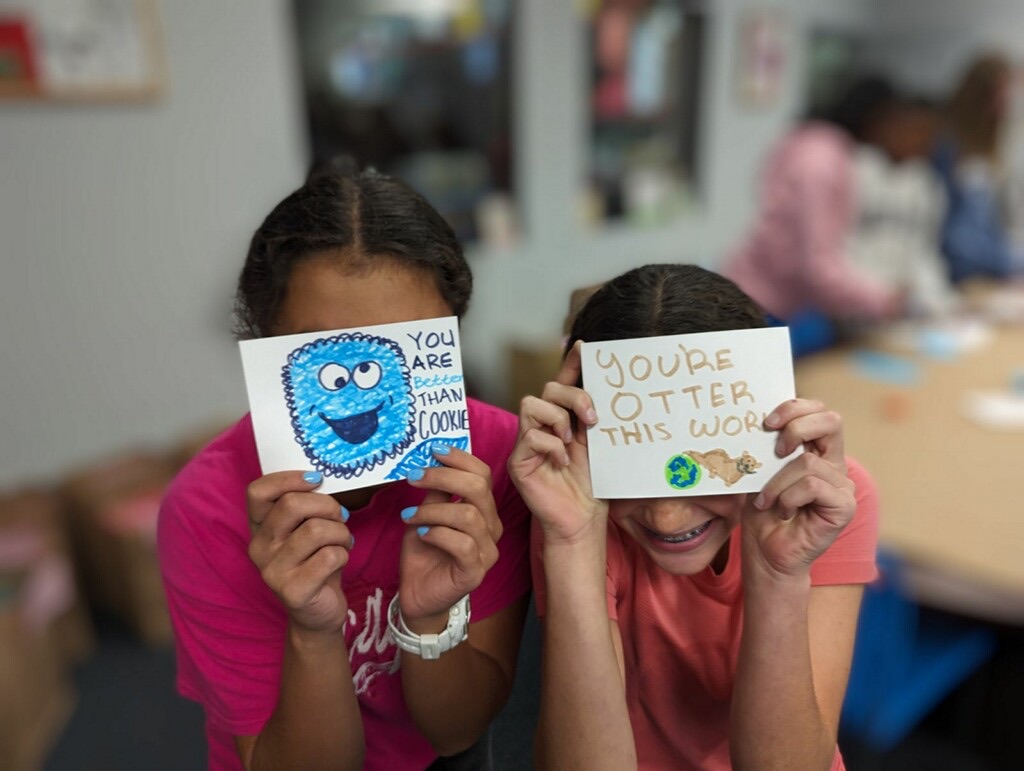
One of the most important elements of our food bags is how we preserve the dignity of the kids we serve.
Each food bag also contains a beautiful note of encouragement inside. Positive affirmations go a long way. We have heard that many of the kids save these notes or put them on their fridge. They get excited to see what message is in their bags.
What sets Baltimore Hunger Project apart from other nonprofits in your community?
Our partnerships with schools and the community are very unique. We work closely with our community school facilitators to determine how to better support the students throughout the year.
We also have a large number of volunteers, including approximately 90 regular volunteers who are here all week. We pack food bags three times a week with different groups that volunteer with us, including both corporate and community groups.
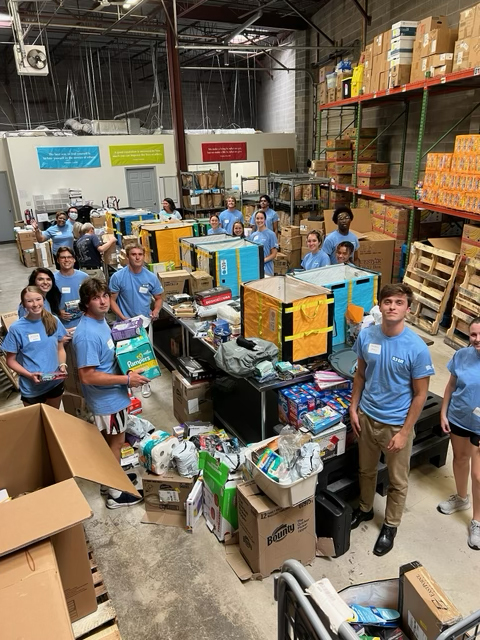
Tell us a story that illustrates the good work of your organization.
The students are all anonymous to us, but I did receive a bunch of notes from them at the end of the school year to thank us for the support. They were just some of the most heartwarming and heartbreaking stories.
One child wrote a note thanking us for the food because their mom works on the weekends, and without the food bags, they wouldn’t have anything to eat. Another child wrote, “Thank you for the sanitary products. Without them, I wouldn’t be going to school.”
We don’t often take the time to step back and consider what life might be like for somebody else. For example, I was at our facility recently when a woman walked in looking for food for her two small kids. Normally, we don’t provide food like that, but she explained how, with schools being closed for the summer, she was having a hard time feeding her kids. I showed her different places and resources where she could get food in the summer. Then, I took her to the warehouse and loaded up boxes of food for her.
Food insecurity is so overwhelming here. It affects people you see when you go to the grocery store or run errands. It is right in front of you all the time. That person struggling could easily have been me or any one of us. Moments like this remind me how powerful the work we do is. This organization is making a difference for thousands of kids every week.
Food insecurity is so overwhelming here. It affects people you see when you go to the grocery store or run errands. It is right in front of you all the time.
What is your most outstanding achievement or contribution to the community?
One thing I am very proud of is our program called Empowering Minds. While we are currently feeding almost 2,000 students a week and making a significant impact that way, we are also educating high school students about food insecurity.
This program is based on four core questions: What is food insecurity? How can I relate to it? Why does it matter? How can I make a difference?
We challenge young adults to consider those four pillars and brainstorm solutions. We help teach young adults to think outside of their circumstances, focusing on empathy. Through this education, we empower these young adults to go back home and into their own communities and share that knowledge.
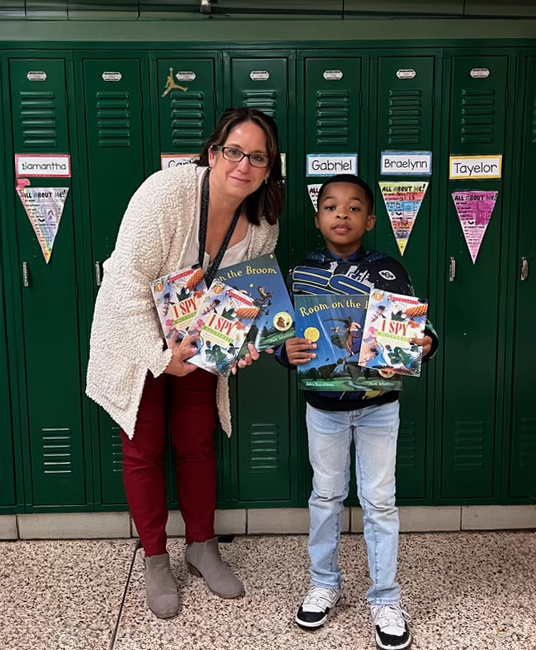
How will you use the funds you’ve received from the Giant Food Community Bag Program?
As I mentioned before, we just celebrated our 10th anniversary. During this time, we have distributed over one million meals to students in Baltimore. Since each food bag costs about $7 to make, these donations really go a long way. The money we received from this partnership with Giant has been enough to provide 143 weekend food bags.
Another great thing about the program is that Giant puts our name up in the stores, allowing people to see it. Many people who may not have known about Baltimore Hunger Project might become interested in our organization and cause through this partnership.
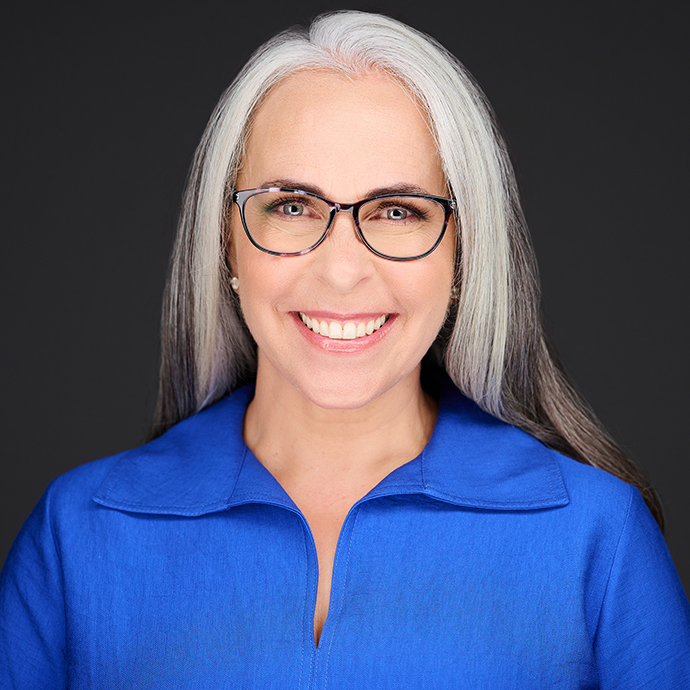
Interview with Lynne Kahn, Founder and Executive Director
Published September 4, 2024.

